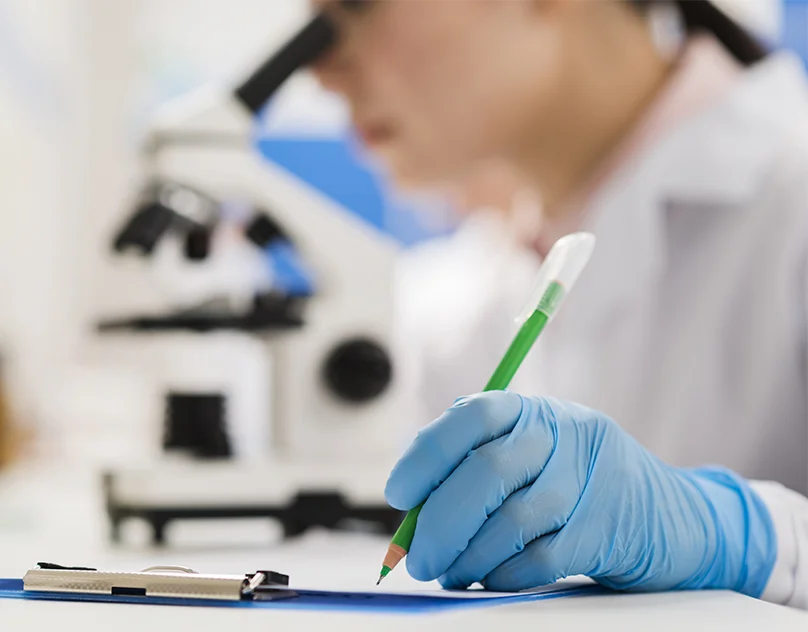Fahadh Faasil: A Spotlight on ADHD, Technology, and the Future of Diagnosis and Management
Fahadh Faasil: A Spotlight on ADHD, Technology, and the Future of Diagnosis and Management
Introduction
Fahadh Faasil, the acclaimed actor known for his powerful performances and versatility, has not only made headlines for his work in the film industry but also for his candid discussions about living with Attention Deficit Hyperactivity Disorder (ADHD). His openness about managing this condition provides valuable insight into the daily challenges and triumphs of living with ADHD. As we look towards the future, advanced technologies such as predictive genetic testing offer new possibilities for understanding and managing ADHD more effectively.
Understanding ADHD
Attention Deficit Hyperactivity Disorder (ADHD) is a neurodevelopmental disorder characterized by symptoms such as inattention, hyperactivity, and impulsivity. While ADHD is often diagnosed in childhood, it can persist into adulthood, affecting various aspects of life, including career, relationships, and daily functioning. Managing ADHD typically involves a combination of medication, therapy, and lifestyle adjustments.
Fahadh Faasil’s Journey with ADHD
Fahadh Faasil’s approach to managing ADHD exemplifies resilience and adaptation. His success in the entertainment industry, despite the challenges posed by ADHD, demonstrates his ability to harness his strengths and navigate his condition. Fasil has openly shared his strategies for managing ADHD, including maintaining a structured routine, seeking support, and leveraging his unique traits to his advantage.
The Role of Advanced Technology in ADHD Management
In recent years, advanced technologies have begun to play a significant role in the diagnosis and management of ADHD. One of the most promising developments is predictive genetic testing. This technology offers the potential to transform our understanding of ADHD and enhance how we manage the condition.
Predictive Genetic Testing
Predictive genetic testing involves analyzing an individual’s DNA to identify genetic variations that may be associated with specific conditions, including ADHD. This type of testing can provide valuable insights into an individual’s predisposition to ADHD and other related disorders. By identifying genetic markers associated with ADHD, predictive genetic testing can help in several ways:
- Early Detection: Genetic testing may allow for earlier detection of ADHD, even before symptoms become fully apparent. Early identification can lead to timely interventions and better management strategies.
- Personalized Treatment: Understanding an individual’s genetic profile can help tailor treatment plans to their specific needs. This can lead to more effective management of symptoms and a reduction in trial-and-error approaches to medication and therapy.
- Risk Assessment: Predictive testing can provide insights into the likelihood of ADHD developing in children, especially if there is a family history of the disorder. This knowledge can guide preventive measures and early interventions.
Enhanced Understanding of ADHD
Predictive genetic testing can be integrated with other technological advancements, such as digital health tools and brain imaging technologies. For example, combining genetic data with brain imaging can provide insights into how genetic variations affect brain function and behavior. This holistic approach can improve our understanding of ADHD and lead to more effective interventions
Integration with Other Technologies
Predictive genetic testing can be integrated with other technological advancements, such as digital health tools and brain imaging technologies. For example, combining genetic data with brain imaging can provide insights into how genetic variations affect brain function and behavior. This holistic approach can improve our understanding of ADHD and lead to more effective interventions
Fahad Fasil’s Influence on ADHD Awareness
Fahadh Faasil’s openness about his ADHD journey not only raises awareness about the condition but also emphasizes the importance of ongoing research and technological advancements. His story highlights the need for continued innovation in ADHD diagnosis and management. As we look to the future, the integration of advanced technologies like predictive genetic testing holds promise for transforming the landscape of ADHD treatment
Conclusion
Fahadh Faasil’s experience with ADHD showcases the resilience and adaptability required to manage the condition while achieving professional success. As technology continues to advance, predictive genetic testing represents a significant leap forward in understanding and managing ADHD.
By offering earlier detection, personalized treatment, and a deeper understanding of genetic influences, these technologies promise to enhance the lives of individuals with ADHD.
In celebrating Fahadh Faasil’s achievements and acknowledging the impact of advanced technologies, we recognize the importance of continued research and innovation in mental health. Fahad’s story serves as a beacon of hope and inspiration, reminding us that with the right tools and support, individuals with ADHD can overcome challenges and achieve their goals.
Related Blogs :

Understanding Genetic Methylation Tests: A Guide
Understanding Genetic Methylation Tests: A Guide Introduction What is Genetic Methylation? The Role of Methylation in Gene Expression The Importance of Genetic Methylation Tests Health Conditions Linked...


Expert guidelines on treatment and management of cardiovascular diseases
Expert guidelines on treatment and management of cardiovascular diseases Introduction What are the various cardiovascular disease treatment options? What are the treatments for cardiovascular disease in advanced...

Doctor of Pharmacy (Pharm.D) from the University of Delhi Experience : Dr. Srinivasan is an experienced pharmacist with a Doctor of Pharmacy degree from the University of Delhi and over 12 years in the field. She has worked extensively in clinical and community pharmacy settings, focusing on patient care, medication management, and drug safety. Dr. Srinivasan also contributes to health and wellness publications and serves as a consultant for pharmaceutical companies and healthcare organizations. Her expertise spans clinical practice, pharmaceutical writing, and regulatory affairs.



Great article! I really appreciate the clear and detailed insights you’ve provided on this topic. Looking forward to more informative posts like this!